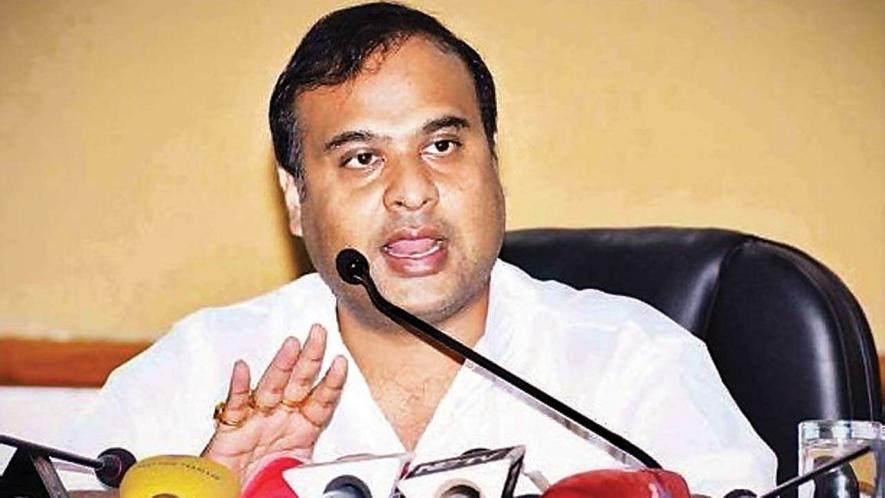BJP’s Politics in Assam Post-CAB: Communal Division, Aberration of Facts

Image Coutesy: DNA India
The lapse of the contentious Citizenship Amendment Bill (CAB) might have given some relief to the people of Assam and other parts of the North East (NE), but the Bharatiya Janata Party (BJP), especially in Assam, has become more aggressive in generating opinion in favour of the Bill and in doing so, has resorted to two tactics—communal division and aberration of facts. The Bill witnessed massive opposition from across NE.
Himanta Biswa Sarma, the Finance Minister of Assam, has now become the strongest voice of the BJP in propagating the communal agenda. In his first response after the Bill lapsed in the Rajya Sabha, Sarma declared that it was a great defeat for the people of Assam. The argument he tried to build up was against Muslim migrants, primarily from Bangladesh. Sarma claimed that the passing of the Bill was the only way indigenous people could be protected, primarily from Muslims. He also listed 17 Assembly constituencies in lower and middle Assam that need to be protected and snatched back from the grips of Bangladeshis (Muslims), but refrained from naming these.
But, in the recent BJP meeting in Lakhimpur, where party president Amit Shah was also present, Sarma named a few of these, including South Salmara, Dhing, Naoboicha and Bhabanipur. These names clearly indicate his motive. These are constituencies where the MLA s are Muslims from the All India United Democratic Front (AIUDF). In Assam, it is widely thought that AIUDF is a representative party of Bangladeshi Muslims. By naming these constituencies, Biswa’s message is loud and clear —these constituencies are won by Muslims because of the Muslim population and it is this population which is the greatest threat to the people of Assam. Earlier, too, Sarma had said that these areas needed to be rescued from the “predecessors of Jinnah”.
Sarma has resorted to playing the communal card by also projecting some utopian ideas as facts about the Assam Accord and the date of determining citizenship. He said the date of determining citizenship on the basis of the Assam Accord was problematic. The date should not have been March 24, 1971, as declared in the Accord, rather it should have been based on the year 1951, he said. The Assam Accord, signed in 1985, came as a result of the Assam Movement which claimed 855 lives. Sarma is now also holding the All Assam Students Union and Congress responsible for those lives as also signing the Assam Accord, which he sees as a great betrayal to those killed in the movement.
It needs to be mentioned here that while the base year of determination of citizenry in India is 1951, when the first NRC (National Registry of Citizens) was drafted; but in Assam this base year is 1971, based on the Assam Accord. The shifting of timeframe in Assam was because of the Bangladesh war when lakhs had to migrate from present day Bangladesh in search of livelihood. Many of them also migrated to Assam. Sarma’s assertion on considering 1951 as the base year for Assam is nothing but an aberration of facts.
We need to understand why CAB faced a backlash in Assam. Primarily, the people of Assam did not accept the idea of granting citizenship on religious basis. Their main concern was about Hindu migrants from Bangladesh. This is one reason why the RSS-BJP idea of citizenship based on religion was not able to garner support. Now, with Bill getting lapsed, BJP leaders have intensified their politics of fear-mongering which, they hope, will turn the opposition to CAB in its favour.
While Sarma has been busy in playing around with his theory of Hindu-Indigenous versus Muslim migrants, chief minister Sarbananda Sonowal is largely projecting the development projects taken by his government. He is not seen as engaging as such with only the Hindu-Muslim divisive line. Nevertheless, Sonowal also was very vocal in supporting CAB.
All this seems a calculated move by the ruling BJP in Assam -- one section engaged in propagating communal and hate politics while the other highlights “achievements” in development, such as road construction, distributing subsidised rice to the poor etc. Ironically, the disturbing employment scenario, the moribund condition of government schools, unabated boom of the private sector in health care and growing difficulty of the rural and poorer population in accessing health care facilities etc. don’t get any place in these campaigns and propaganda. Rather, the Assam Budget this year approved “Scheme Arundhati” where it declared that one tola (11.34 gm) of gold would be given to brides belonging to the economically weaker sections with an annual income of below Rs 5 lakh. Sarma was seen declaring shamelessly that the new scheme would reduce cases of divorce, talaq and domestic violence. This is the first time Assam has got such a regressive scheme that indirectly legitimises dowry.
It is now clear that BJP will continue this twin-headed campaign till the Lok Sabha election, with the motive of dividing the united opposition to CAB on religious basis, confusing and diverting people from the issue.
Get the latest reports & analysis with people's perspective on Protests, movements & deep analytical videos, discussions of the current affairs in your Telegram app. Subscribe to NewsClick's Telegram channel & get Real-Time updates on stories, as they get published on our website.
























